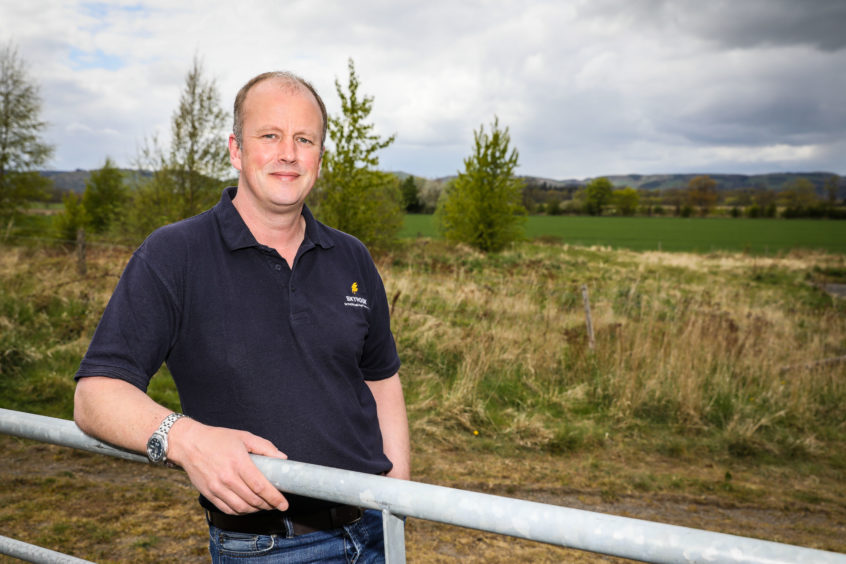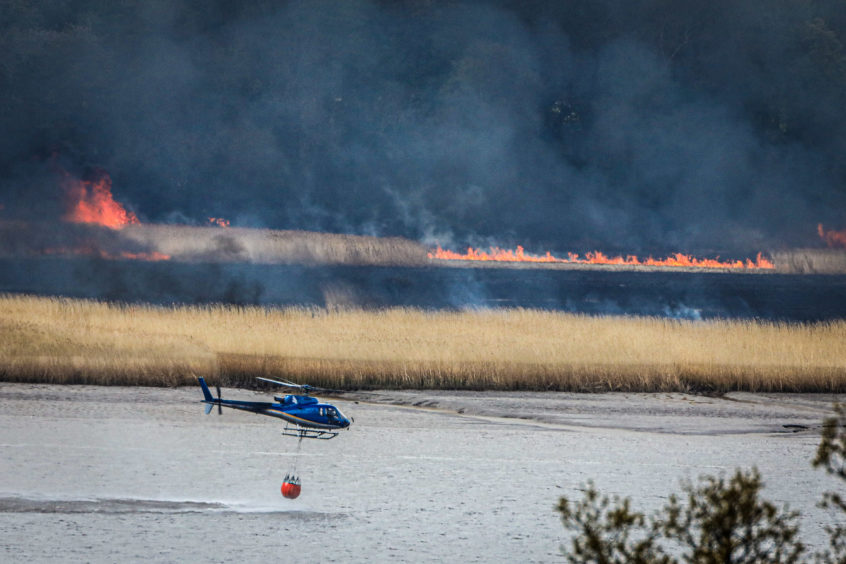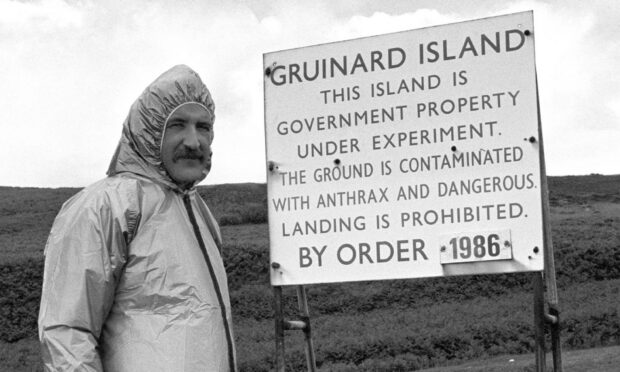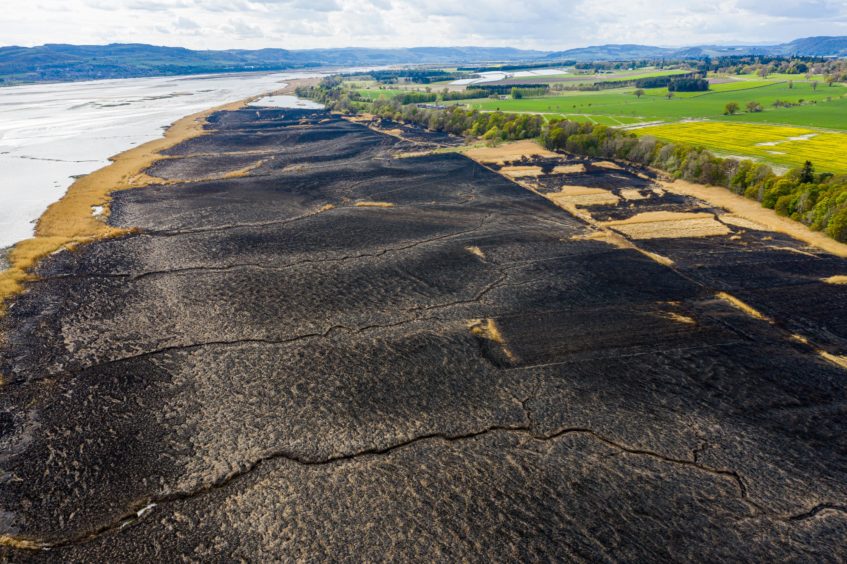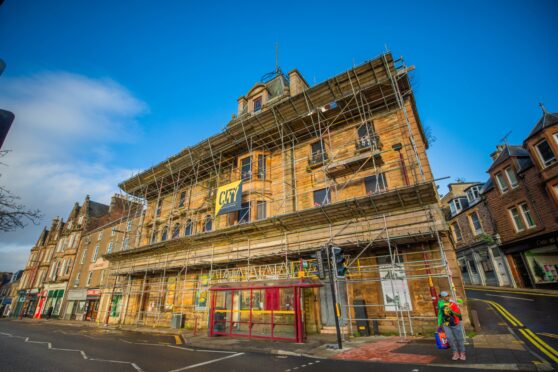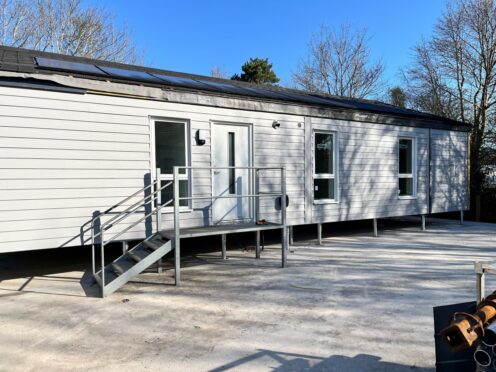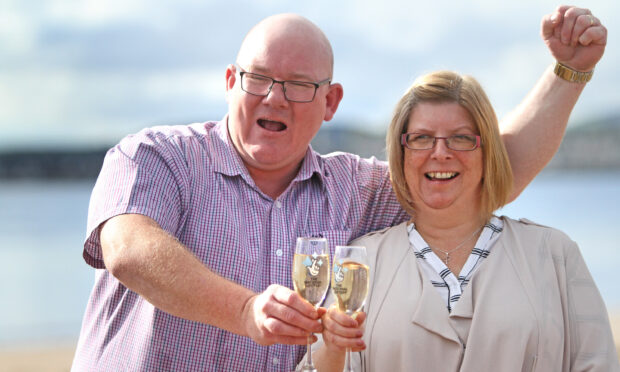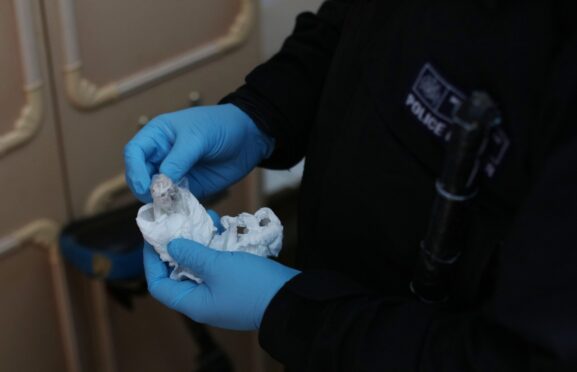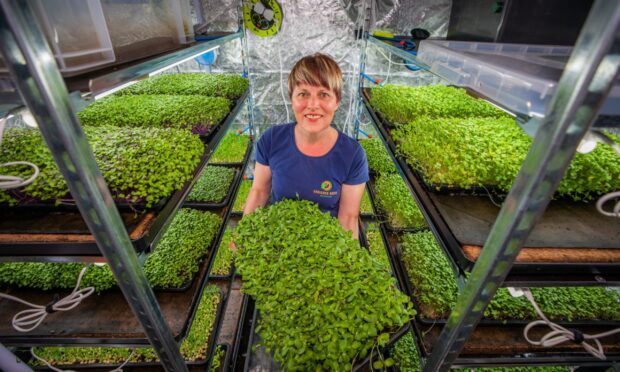A helicopter pilot who helped tackle 40-foot flames at the Tay reed bed blaze has told how he had to weave through plumes of black smoke to dump water on the inferno.
Guy Stephens, who lives less than two miles from the conservation area, doused the burning bird habitat with 77,000 litres of water taken from the River Tay as fire crews tried to contain the blaze.
The pilot, who works for Skyhook Helicopters, has experience helping fire crews and was forced to “duck and dive” between the billowing black smoke in order to dump his water buckets on the towering flames.
Guy said: “I live in Errol and I could see the fire from my kitchen window.
“So I phoned the control room in Dundee and told them I had an asset available. Each fire is significantly different.
“Moorland fires are not so bad but this one was a little bit scary because of the plumes of black smoke and the fire was burning into the wind so it was very hard to get in above the flames to dump the water.
“There was a lot of ducking and diving because I can’t fly through the smoke.
“Usually if you can get a couple of decent dumps it dampens it down a bit and that allows you to get more accurate placement.”
Guy helped tackle the fire for about two hours and believes he was lucky it had broken out where he had easy access to water.
The pilot dropped 77,000 litres of water on the fire, filling his helicopter’s 1,000 litre bucket, 77 times.
He said: “It was fortunate because we had the River Tay right beside us and it only took a few seconds to get over and back.
“That amount of water in such a close proximity makes a massive difference.”
The Errol fire is the second Guy has helped tackle in less than a week after spending four days in Drumfries and Galloway fighting a 15-kilometre wildfire.
He said: “We’ll travel anywhere that needs help.
“It’s this time of of year where we just need to drop everything and go to get on top of it.”
Gordon Pryde, Scottish Fire and Rescue Service local senior officer, said the helicopter support helped them extinguish the blaze much more quickly.
“The helicopter allows us to put large quantities of water exactly where we need it, whereas if we had not had access to that helicopter we would have had to tackle it from the edges and work our way in, which would take longer and there would be the potential for greater fire spread during that longer period of burning.”
The RSPB hope the reed bed will recover in 12 to 18 months but believe the birds, including the bearded tit, marsh harriers and water rail, will have lost their nests and broods, which could have longer term effects.
